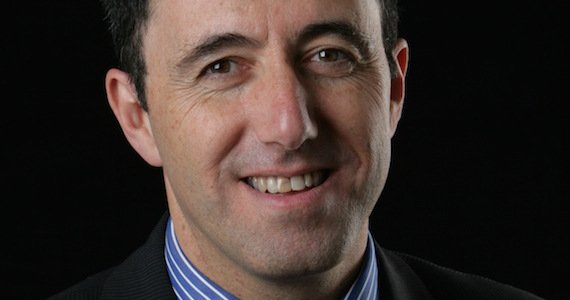By Gidon Bromberg, Israeli Director, EcoPeace Middle East
Water is at the center of the humanitarian crisis in Gaza that was further fueled by the violent events of the summer, and has left an estimated 1.2 million Palestinians with intermittent water supplies. With an insufficient electricity supply in Gaza to treat or pump out sewage, drinking water contamination is a pressing health risk, compounded by a poor ability to chlorinate water.
This situation requires an immediate response. Palestinians in the West Bank also lack an equitable supply of water and are left to contend with poor sanitation services, while Israelis face contamination of shared water sources by this wastewater. A comprehensive solution is needed.
The war in Gaza has signaled that cooperation with the moderate Arab world -- possible only with the renewal of a political process toward a two-state solution -- is in Israel's best interest. Following a series of in-depth discussions and a simulation held by the Institute for National Security Studies (INSS) and EcoPeace Middle East we believe that a negotiated agreement on water and sanitation would help build trust necessary for tackling the more challenging final status issues, and that resolving water and sanitation issues would offer significant political gains at low political costs to both sides.
Palestinians desperately need an increase in their water supply, especially in Gaza. An increased supply of water from shared sources is a necessary component in a negotiated agreement. And if their wastewater was treated, Palestinians would have an increased supply of water (fresh and treated) for domestic, industrial and agricultural use -- an added benefit to the Palestinian economy.
Treating wastewater in the Palestinian territories would mitigate tensions with Israel by decreasing the flow of sewage into shared water sources. Reduced pollution would be a significant gain for Israel, as many of the affected rivers and streams flow through major Israeli cities.
Allocating more water to the Palestinians from shared sources would not be detrimental to Israelis. With recent improvements in large-scale desalination and wastewater treatment and reuse, increasing supply to the Palestinians would have little effect on the Israeli water economy.
A negotiated agreement on water and sanitation is economically and politically feasible, and advantageous to Israel, Palestine and the environment. An increase in water supply and sanitation services would significantly reduce health risks, especially in Gaza, and improve living conditions on both sides. Most importantly, an agreement on this aspect of the negotiations would serve as a framework for cooperation and an opportunity to build trust among decision makers.
To learn more, read the INSS and EcoPeace Middle East report on immediate measures to address the water, sanitation and energy crisis Gaza. The team has developed a draft Water Accord that could serve as the basis for negotiations, based on principles of economic efficiency, social equity, ecological sustainability and practicality of implementation.
Between October 27 and December 5, EcoPeace Middle East is participating in the Skoll Social Entrepreneurs Challenge on CrowdRise.
